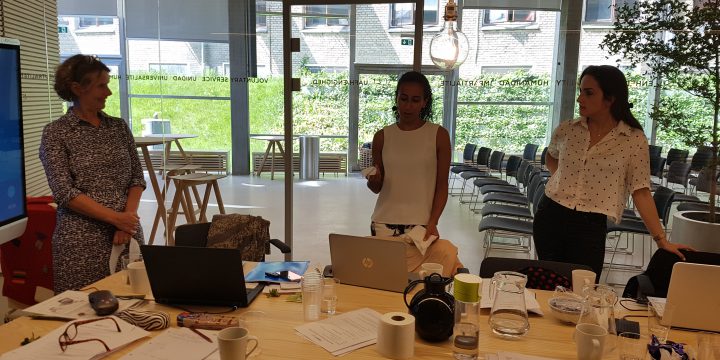
SAFE’s partners British Red Cross (BRC), Danish Red Cross (DRC), KMOP and CARDET identified the main objectives and methodologies in producing the gap analysis and need assessment in the four countries during the kick-off meeting. SAFE’s partners emphasis on the crucial need to conduct multiple analysis on the existing gaps, needs, and challenges in family-based care services for the unaccompanied children in each of the partner countries. As well, SAFE partners agreed to map the trainings that are currently available for the professionals, foster carers, kinship carers and Dublin families in the UK, Greece, Cyprus and Denmark. At the end of SAFE’s kick-off meeting, the project partners finalised the structure of gap analysis and needs assessment report by incorporated the partners’ inputs and agreed on utilising different methodologies to gather information for the report. Some of these methodologies that were agreed were: desk research, individual face-face consultation, group face -face consultation and phone interviews.
CARDET started to conduct their country-specific gap-analysis and need assessment report by using various methodologies such as: desk research on relevant legislations and studies as well as face-face meetings with multiple stakeholders (Hope for Children, MiHub, Social Work department from University of Nicosia, KISA, Cyprus Refugee Council and Ombudsman). Cyprus’s findings have proved to be a very relevant process to gather the information on the current situation of the unaccompanied children in Cyprus and identify various training needs for the professionals that work with these children. The meetings with the stakeholders have enabled CARDET to introduce the project and establish several contacts with frontline practitioners and professionals who have first-hand experience working with these children.
DRC implemented different methodologies for the purposes of analysing the relevant data to be included in their country-specific galp analyst report. DRC conducted a desk review on the existing literature, studies, policy documents as well as reviewed the legislative frameworks and policies regarding the protection of unaccompanied children. DRC decided to organise a consultation workshop to validate the findings gathered from the desk research to be reviewed by the practitioners working unaccompanied children. The workshop consultation was held at DRC headquarters and participated by members of Danish Red Cross, municipality of Roskilde and the municipality of Gentofte working with unaccompanied children. The Danish gap-analysis and needs assessment report has laid out a solid groundwork for further relating country-specific activities, consultation workshops and developing the content of the e-training modules.
KMOP undertaken a desk research and face-to face consultations with professionals and practitioners for the purposes of conducting their country-specific gap analysis and needs assessment report KMOP’s research focused on analysing the current national legislative frameworks, policy documents, statistics, studies and reports relevant to safeguarding and protection for unaccompanied children. KMOP met with many professionals and expert from IOM Greece and the Greek NGO METAdrasi and discussed the current care and services that are provided to unaccompanied children in Greece. KMOP’s findings have provided rational and thorough information on the current situation of unaccompanied children, relevant legislations and the training needs for these professionals in providing protection to the children.
BRC assessed the current family-based care systems in the UK and researched the child protection legislations, policies and guides documents. BRC decided to organise several face-face interviews with in-house service providers staffs, members of NGOs working in child protection sector, representatives of local authorities. BRC’s findings offer a general overview on the unaccompanied children population, statistics, recent dispersal National Transferal Scheme, care frameworks, and the main gaps and challenges and major training needs for professionals and foster carers.
